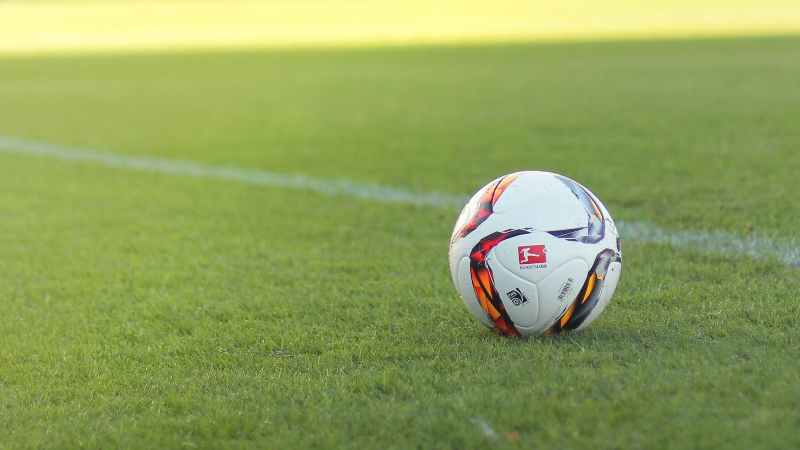What is Soccer?
In the most basic definition, soccer is a game involving two teams of 11 players. The purpose of the game is to propel the ball into the opponents’ goal using only the feet, head, or body. Only the goalkeepers can touch the ball with their hands. The team that scores more goals in the allocated time wins.
Soccer is the world’s most popular team ball game both in numbers of participants and spectators,
A Soccer Coach is a person who through, instruction, direction, and training, enables and assists the team to achieve levels of performance that they may not have achieved if left to their own devices.
What courses are available?
Universities and colleges in Ireland are offering Personal Training courses in the following subject areas:
- Soccer – The study of the academic, physical, technical, tactical, and psychological knowledge necessary for the demands of an athlete and soccer coaching.
- Soccer Coaching & Education – Gain the skills and knowledge to be a soccer coach or improve your soccer skills.
- Soccer Coaching & Sports Psychology – The study of Soccer Coaching and Sports Psychology and the skills to become a coach, referee, manager, and any other key personnel.
- Sports Coaching & Business Management – Gain the skills and knowledge to have a well-rounded understanding of their chosen sport as well as business and management skills.
- Soccer Studies & Fitness Instruction – The study of fundamental movement skills and the development of the player’s soccer-specific skills.
Studying Soccer in college
There are full-time Soccer courses available that run anywhere from a few weeks to 1 year to 4 years depending on the course and modules selected. There are also part-time courses and night courses available so you can be sure to fit in your studies no matter what your schedule is like.
All theory work during Soccer courses will be delivered through lectures, assignments, tutorials, and taught modules. Assessments will take place continuously with written examinations and practical assignments combined to achieve the qualification.
You could also consider work experience or work shadowing in areas such as Sports Management and Sports Clubs.
Career options
After completing a course in Soccer you will be able to get started in a career that uses specific knowledge of physical fitness and Soccer skills.
Related jobs include:
- Soccer Player
- Soccer Coach
- Soccer Manager
- Soccer Training
- Fitness instructor
- Fitness director
- Personal trainer
- Sports management
- Business development
- Data analytics
- General Managers
- Sports journalists
- Sports marketing
- Sports medicine
- Sports psychology
Further study
After completing Soccer Courses you may choose to pursue further study in a specialist field and specialize within a certain area of health and fitness such as sports nutrition, sports medicine, fitness training, or massage or you may be interested in furthering your studies on the business side with courses in business or marketing – all of which will add to your skills in Soccer and open up more opportunities to you in the field.
Postgraduate study can also be a useful stepping stone to a change in career or focus or to gain professional qualifications required to practice in certain career areas such as sports commentary, journalism, and broadcasting or merchandising.
FAQ
What is the purpose of a Sports Coach?
Sports coaches monitor player’s performances during training and competition and advise players on how to improve and build their skills through training and practice.
Sports coaches will find suitable competitions, matches, and programs for players to enter and keep up to date with current training techniques and trends. Sports coaching involves constant research and learning about sports, diets, nutrition, injuries, and exercise to ensure players are safe at all times and get the best experience possible.
Coaches are responsible for a player’s physical performance and keeping their mental and emotional well-being as a priority too. Happy players perform better and have more confidence.
How do I get started in a Soccer career?
The first way to get involved and get some experience is to join a team or a club or volunteer as an assistant coach at your school or in your local community.
Here you will get to learn the ins and outs of the game, the rules and regulations as well as building up a relationship with the players and building your confidence.
Get to know people who are involved in Soccer Clubs and facilities and express your interest for a chance to show your skills and abilities.
Where can I study Soccer Courses?
Explore your options here
Did You Know?
· Referees were not used in official soccer matches until 1881. Up until then, people playing were responsible for making any calls.
· The country of Greenland has never been able to have a FIFA-recognized team. That is because they can’t grow grass to create fields.
· Soccer is the most lucrative sport in the world. The soccer industry produces more money than any other sport.
· During his entire career, Brazilian superstar Pelé scored 1283 goals in 1360 games, putting him at the second-best record of all time, second only to Arthur Friedenreich who is believed to have scored 1329 goals in his career.
· The Romans introduced an early form of soccer to England in 43 AD. In these early games, punching and biting were allowed on the field, creating such an atmosphere of disruption that many attempted to have the game banned.












Comments